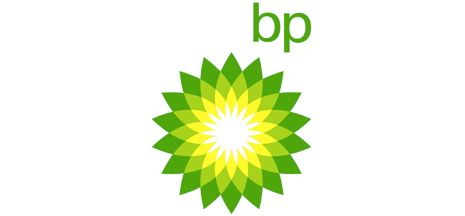Much has been written and commented about the ongoing BP disaster in the Gulf of Mexico. This story most certainly has a brand lesson. I wonder if the big companies and the agencies that market them are paying attention?
When British Petroleum became “BP” in 2000-2001, they also unveiled a new brand that was very much about being environmentally responsible. The logo made reference to the sun and nature, and was supported by ad campaigns touting the company’s new position as being “beyond petroleum.” They made of themselves a very appealing and evocative brand. It was fresh, hopeful, and reassuring, nearly perfect in every way. It was almost impossible not to like. One small problem though—it wasn’t true. The world’s third largest oil company was never going to be about green energy and was not going to be moving its core business “beyond petroleum” in any significant way any time soon, if ever.
For nearly ten years, this did not seem to bother anyone. Why couldn’t they brand themselves into the happy green future when petroleum is something you move past? BP consistently held the highest position among petroleum companies in the minds of consumers, and it is, of course, in the mind where all brands reside. The fact that this brand was never true—never anything close to an accurate reflection of the essential values of the company or its primary activities—got no notice. BP wore a magic green brand cloak that seemed to possess tremendous power. But now, with the world closely watching, they are revealed as their true corporate selves, and their brand, so carefully built with millions upon millions of dollars, is rapidly falling to pieces. The hopes of consumers that a giant oil company could actually be something other than a giant oil company have been given a harsh reality check.
It was fresh, hopeful, and reassuring, nearly perfect in every way. One small problem though—it wasn’t true.
Rarely has so much public attention and anger been focused specifically on a company’s brand. But the irony, the disconnect between the projected brand image and the grim reality now being revealed, is just too striking and obvious to be passed up. Images of the tarnished or oil-stained BP logo are now being distributed even by very credible sources (see Christian Science Monitor). Greenpeace UK launched a logo contest last week “to depict the real image of the oil company.” You can now view hundreds of what Fast Company calls “oily, gruesome redesigns” of the BP logo on a dedicated Flickr page. The very popular BPGlobalPR, a BP public relations parody Twitter account, captures in one of its tweets the now obvious disingenuousness of the BP brand: Please help us with rebranding. We’re not calling it an “oil spill” anymore, now it’s a “Southern Fun Party.” Nothing can save this brand from massive public exposure of its fundamental mischaracterization of the company.
Will this kind of brand implosion serve as a warning for other corporations and their agencies? Will it encourage them not to play so loose with the truth, be less willing to barrel down the well-trodden path of exaggeration, adopt selective truths or outright falsehood?
It seems highly unlikely.
It’s just too easy to lie. The attraction is too great.
It’s just too easy to lie. The attraction is too great, the professional confidence in the gullibility of the consumer is too well-established, the benefits to the company of a “visionary and future-oriented” brand are too immediate and bankable to pass up for the sake of such unsexy things as brand integrity.
Some might argue that this was a failed opportunity for BP to have shown itself able to get out in front of the situation and engage with media and the public, and by this kind of decisive action (a la Tylenol 1982) restore confidence to its brand. I think not. This is just a company being exposed from beneath its well-crafted brand skin. The truth is oozing to the surface. It’s actually kind of like a giant oil spill, and the cleanup will never be able to restore this brand to its original state of grace.
Do you need an affordable way to improve your brand today?
Because we know that not everyone needs or can afford our full process, we created a guided tutorial package for our foundational brand strategy tool: the Brand Pyramid. Watch the video for a preview.
For more information on the brand strategy tutorial, visit here where you will find a fuller explanation and link to a free download of the first video.




Ask for help.
We are kind, thorough and ready when you are. You just need to ask.